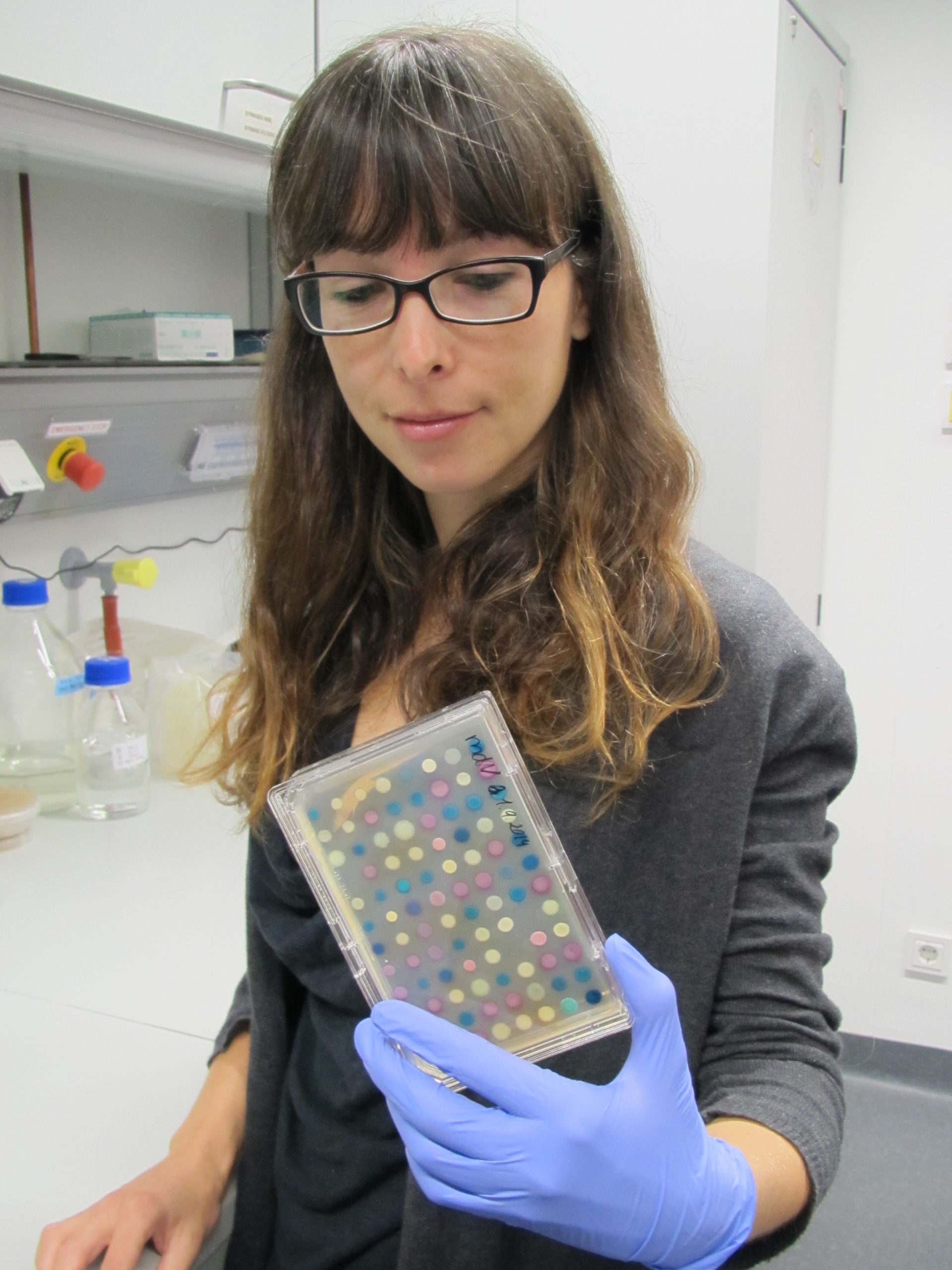The researchers took samples from elderly patients with a mixed bladder inflammation and tracked the development of the bacterial communities. Photo Marjon de Vos
Elderly people with a urinary tract infection often contract a polymicrobial infection, which means that it is caused by several species of microbes simultaneously. These infections are difficult to treat and have a lesser response to antibiotics. ‘Our results show that it might be better not to approach polymicrobial infections the same way we approach normal urinary tract infections’, says De Vos, who is a researcher at the Laboratory of Genetics.
Bacteria mainly compete with each other, but when antibiotics are added, they suddenly start collaborating in order to survive.
Marjon de Vos, Laboratory of Genetics
De Vos studied over seventy microbial samples taken from elderly people with a polymicrobial infection. She followed the growth of the various bacterial strains in the presence and absence of antibiotics. Based on these measurements and in collaboration with researchers at IST Austria and the University of Cologne, she created a computer model that can predict how the composition of the bacteria will change given various circumstances. De Vos: ‘Bacteria mainly compete with each other, but when antibiotics are added, they suddenly start collaborating in order to survive. As the bacteria can protect one another from antibiotics, this can considerably complicate the treatment.’

Researcher Marjon de Vos in the lab. © Karin Mitosch
Although the research is very fundamental, De Vos expects applications to be within reach. Take diagnostics, for example: these should not simply focus on a single bacterial strain, but on bacterial communities. According to De Vos, the ecosystem approach offers new perspectives for treatments. ‘We are considering adding new bacteria that are harmless to humans, but which could upset the microbial ecosystem, making it easier to deal with the pathogenic bacteria.’
De Vos would like to know whether this would also actually work in patients. ‘Until now, we have only tested this in the lab and using computer models. We aren’t sure if the same would work in someone’s bladder. The composition of one’s urine could also influence the process, and that composition varies with time and differs from person to person.’ She would also like to study which substances produced by these bacteria play a part in their interactions.
The research was conducted in collaboration with the Institute of Science and Technology Austria, the University of Cologne and the University of Birmingham. The publication is available online here.
Additional reading (partly in Dutch):
Speuren naar nieuwe antibiotica
Bacteria protects salmon eggs
Resistant bacteria take unknown route
